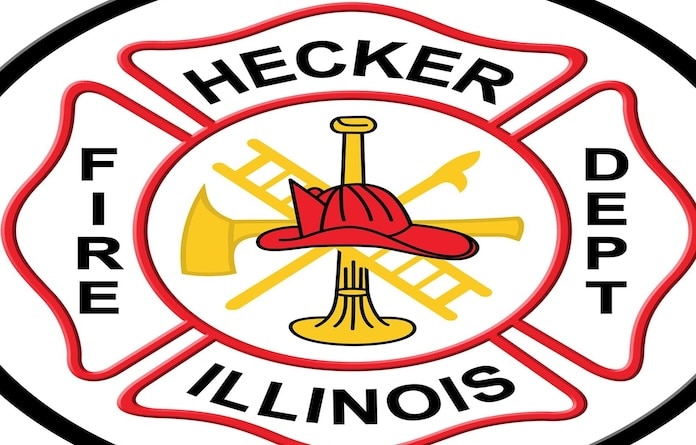City, county finances in limbo
Almost everyone, from individuals to businesses, have seen their finances affected by the coronavirus pandemic, and the same is true for local governments.
With many businesses closed or seeing revenue drastically reduced, municipalities are expecting decreases in tax revenue from video gaming, motor vehicle fuel, sales tax and income tax.
“The biggest thing is the sales tax and the income tax,” Monroe County Commissioner Bob Elmore said during the April 20 county board meeting.
The Illinois Office of Management and Budget is predicting a revenue shortfall of $4.6 billion for the state because of the pandemic as of April 15.
Waterloo Budget Officer Shawn Kennedy said the state estimates a 17.5 percent drop in sales tax revenue, 8.8 percent decrease in income tax money and 17.8 percent decline in revenue from the corporate tax.
“If these predictions hold true, the city will see a decrease as well,” Kennedy said.
The same holds true for Columbia, which, like Waterloo, passed its budget last week for the new fiscal year that begins May 1.
“The largest impact will be felt in an anticipated reduction in sales tax revenues and video gaming revenue,” Columbia City Administrator Douglas Brimm said.
This is because the state sends the money from those and other taxes back to municipalities, but due to how long the process takes, it is unclear how drastic the impact will be.
In May, municipalities expect to start seeing their portion of money from things like the sales tax from March. Until then, it is difficult to gauge how severe the decline will be.
“We don’t quite know right now,” Monroe County Clerk Jonathan McLean said of how much money will be lost. “We’re pretty certain our sales tax is going to be impacted, but we can’t know for sure.”
Depending on the municipality, a decrease in funding can have varying degrees of severity.
In Waterloo, Kennedy said about half of the city’s general fund revenue comes from taxes administered by the state. Columbia gets about 30 percent of its general fund revenue from sales tax receipts, according to Brimm. At the county level, about one-sixth of its budget comes from income tax and sales tax revenue, McLean said.
Depending on how badly those revenue streams are affected, Monroe County Treasurer Kevin Koenigstein said the state may also keep a portion of the money that would normally go to local governments as a “processing fee,” a move it has made before.
Governments have taken steps to combat this predicted revenue loss, with the county implementing a hiring freeze and checking to see if any expenditures can be postponed, Koenigstein said.
Columbia is taking similar steps, reducing its projected sales tax for fiscal year 2021 by $25,000 in the budget it passed last week. It also anticipated a shortfall in its tourism fund, which generates money via the hotel/motel tax and motor vehicle fuel tax.
Additionally, Columbia revised the money it expects to get from video gaming, which dropped by almost half in March. That funding goes toward improving city parks.
“I plan to hold off any capital purchases (equipment mostly) until such time as the true impact of the pandemic is known,” Brimm added. “At this time, I do not anticipate any additional action, including reductions in city services or personnel. Capital expenditures may roll forward into subsequent fiscal years.”
Waterloo has not taken any such concrete steps yet, though it is prepared to do so.
“We will be monitoring the impact the pandemic has on our revenue,” Kennedy said. “We don’t anticipate any direct impact on our expenses. We will be looking at whether to delay some capital projects, while at the same time positioning our projects to be in the best position to be eligible for federal or state funding should any become available.”
The Monroe County Board also discussed postponing some projects and expressed hesitancy in raising the salary for department heads like it normally would, though it did not make a final decision on those matters at the last meeting.
“We need to lead by example, and when our taxpayers and our businesses are suffering, I am not one to go through expenditures like its business as usual,” Monroe County Commissioner Vicki Koerber said.
Both Kennedy and Koenigstein said property taxes will almost certainly not go up to make up for lost revenue due to state laws.
But those tax bills are also unlikely to decrease because taxing bodies like school districts or fire departments are still operating.
School districts, for example, are still paying staff, educating children and feeding many students.
“I just don’t see them backing off of the millions they need for educating our children,” Koenigstein said.
Koenigstein acknowledged, however, that a real estate tax bill may be the last thing people need right now.
“That’s discouraging to someone who may have had a loss of income this year,” he said.
Other options for making up lost revenue are uncertain.
“The city has not discussed any options on making up revenue losses,” Kennedy said.
Columbia has also not made any preliminary plans due to current uncertainties, but Brimm said the city should know more in about three months.
Elmore said the county may explore getting credit from a local bank or the federal government.
“We may be in the position where we have to get a line of credit if this thing keeps going on,” he said.
Another important unknown is how long the effects of the pandemic will be felt in the economy, which Kennedy, Brimm and Koenigstein could not estimate.
“It depends how long this all lasts,” Koenigstein explained. “Will the economic recovery be short-term versus a year or two, or is this the new norm going forward? Those are things you think about, but until we get farther along you really can’t make a decision.”
To help local governments, Kennedy and Brimm said residents can shop locally and complete the 2020 census because that helps determine how much revenue municipalities receive from higher levels of government.






